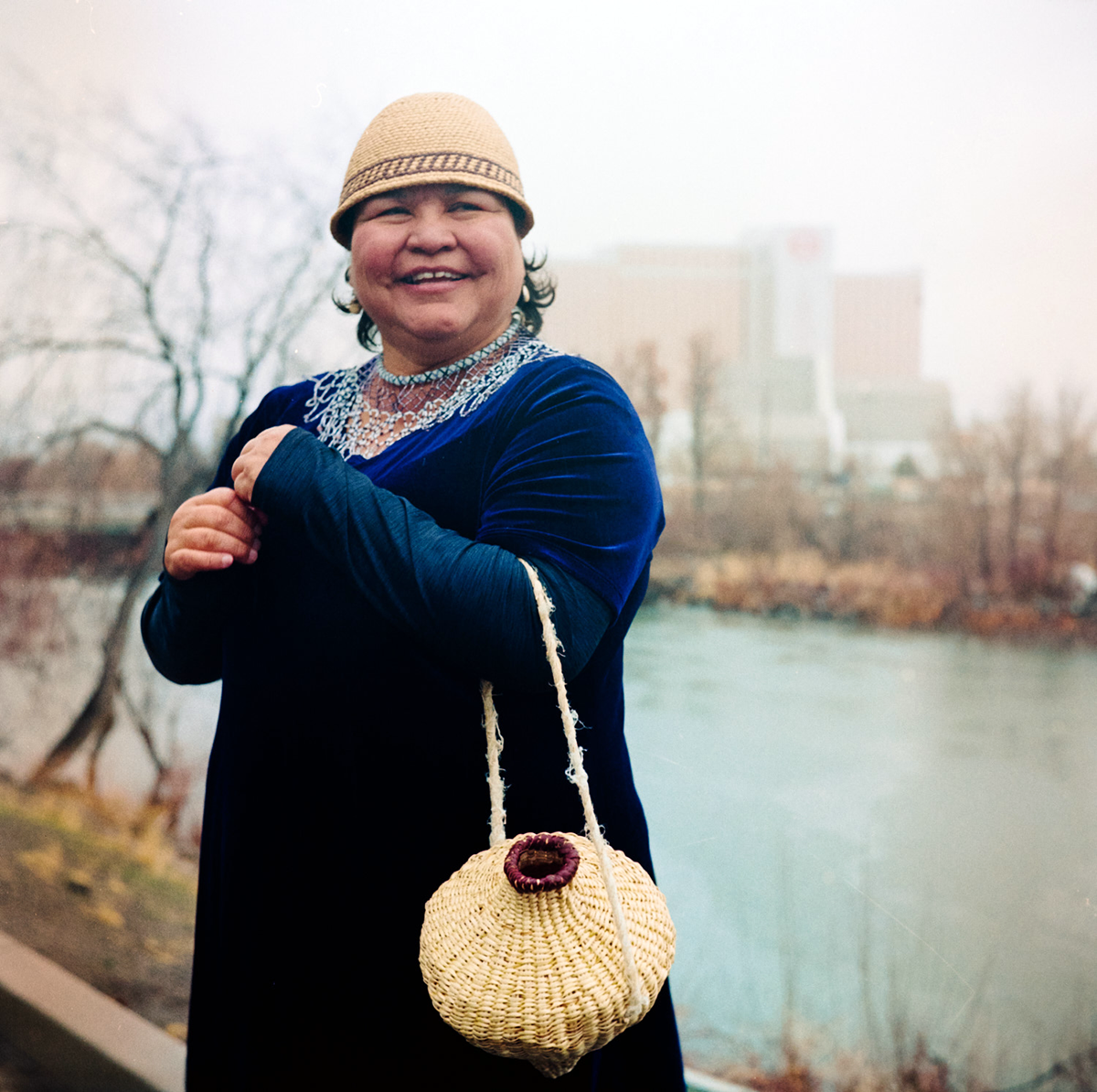
Cora Burchett was raised on the Duckwater Reservation in Nevada, and her Shoshone grandmother was insistent that she needed to pass cultural traditions — stories, songs, language — on to the next generation. Today, Burchett surmises that this was a reaction, in part, to her grandmother witnessing the erasure of Shoshone culture from the broader society. “I think that comes from a worry that Native people might die out or get colonized so bad by boarding schools, like our culture and our people will dissolve,” she said.
Now living in Salt Lake City with her partner, the pressure Burchett, 24, feels about having children is felt by many Indigenous people — but not all. When it comes to starting relationships and having children, the experiences of Native American people are vastly different. Raising children in the city as a single parent, being openly gay, reveling in the single life, choosing whether to stay or leave a community — there is no single experience that sums up the intersection of Native identity, family, and relationships. Below, nine Indigenous people from the Reno and Salt Lake City areas share theirs.

In her youth, Oglala Lakota tribal member Jennifer Boyce was a bit of a tomboy, averse to typical gender roles and in no rush to get married.
“I just knew I wanted to do more than be a mom and stay home and make my husband comfortable,” she said.
But, while attending Brigham Young University-Idaho, Boyce fell in love with Austin, who is white. “He just was different. I was just a person to him before I was a Native woman or a woman of color or even as a woman,” she said. Now married, the couple has a 4-year-old son, whom they are raising in Salt Lake City.
During her pregnancy, Austin expressed concern about their son’s decreased blood quantum, but that didn’t worry Boyce.
“It doesn’t matter, because he’s still Lakota,” Boyce, now 30, said. “It’s not like he’s going to be less Lakota because he’s a quarter instead of half — that’s not important.”
Boyce’s parents emphasized that culture and family were inextricably tied. “Whoever we decide is part of our community, they are Lakota,” she said. “It’s a nationality, not a race. That’s gotten so lost. Even today’s Native communities are so focused on these numbers that the government has given us … no one’s a full blood anything if you ask me. To put so much stock in that is foolish. It’s to deny what being Native really is to me.”
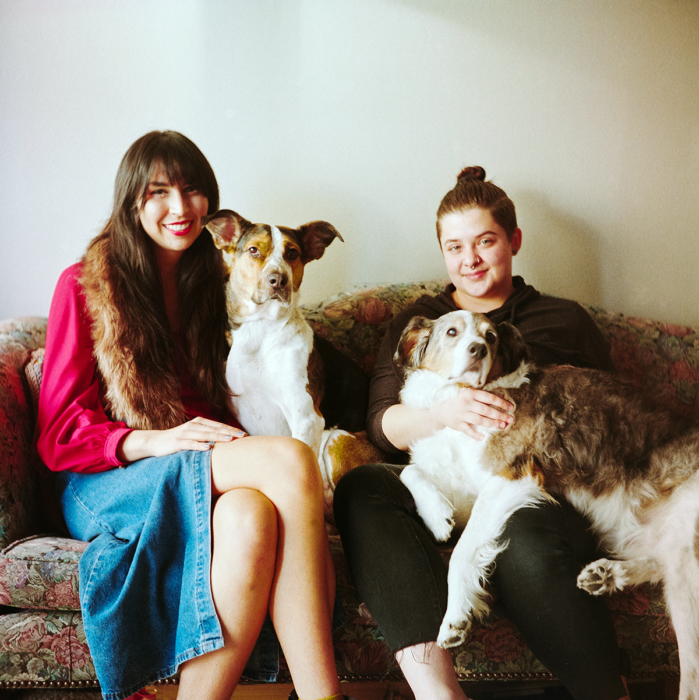
Cora Burchett, at left, and Amanda Francom met and fell in love at a summer youth program when they were teenagers. Living together in Salt Lake City with their two dogs, they say being a gay couple in Utah hasn’t been a very big deal, and they both received support when they came out to their families. “I grew up thinking if I tell my dad I’m gay, he’s going to kick me out of the house,” said Francom, who is enrolled in the Northwestern Band of Shoshone. “And he didn’t. He learned to get over his own uncertainty.”
“My mom toured with the Indigo Girls. She was prepared for this,” said Burchett, who grew up on the Duckwater Reservation in central Nevada with her mom and stepdad.
Both Francom and Burchett say that, if children are in their future, they won’t start a family for a number of years. But the pressure to pass on culture and traditions is present. “I feel that responsibility. I feel like I need to have Native babies,” Burchett said. “And not just, I have to have Native babies, but I need to have babies that are able to carry on everything my grandma and my grandma’s grandma have taught them. Like, I need to do that. That’s a responsibility I feel.”
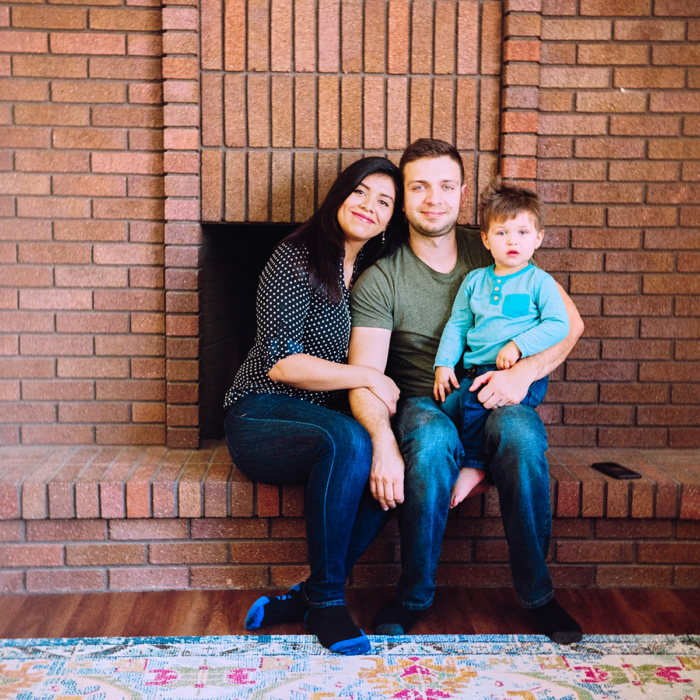
Xenia Berejnoi and her husband, Dmitriy, an immigrant from Ukraine, worry about the cultural and racial challenges of raising their son in the mostly white, mostly Mormon city of Sandy, Utah. Berejnoi has roots in Chihuahua and Michoacan, Mexico, but growing up in Utah made it difficult for her to fully embrace her identity — both as an Indigenous person, and one of Mexican descent.
Over the past six years, she has connected with activist and support groups to help research and understand her identity as an Indigenous person. But she has also found it hard to find acceptance in some Native communities in Utah. When she was asked to participate in an art project for a Native activist organization, she was told by one of the other women involved that she wasn’t really Indigenous. “That hurt the most, coming from an Indigenous person,” Berejnoi said. “It’s not like it’s just white people against Indigenous people. You see that within the Indigenous community, too.”
She worries that her son, who looks just like his dad, will have trouble finding acceptance, too. “I can educate him all I want but he’s going to start questioning when people start treating him a certain way. Like, ‘Why is your mom brown? Why aren’t you brown?’”
The Berejnois are debating whether they should move to a state with more diversity. “I love being close to the huge mountains, and it’s really quiet here, and I love that,” Berejnoi said. “But when it comes to the culture, I can’t just think about myself anymore, I have to think about my son and his interactions with people.”
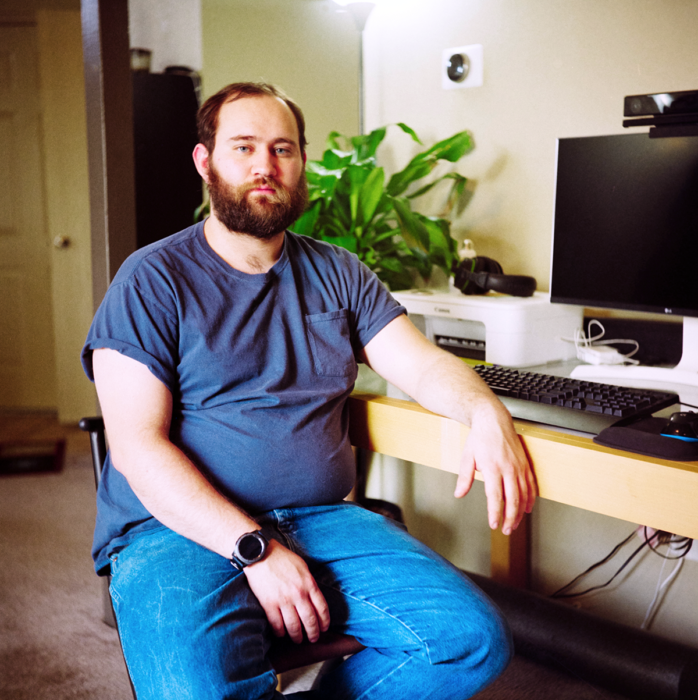
Devin Gardner, 25, an enrolled member of the Ely Shoshone Tribe, came out as gay when he was 19 and living in rural Wells, Nevada. “Before I came out, I didn’t know anyone in our town who came out as gay,” he said. “It was just a thing you didn’t do, because being gay was bad.”
Gardner met his current partner, Chris, on Grindr shortly after moving to Reno; they now live together in a quiet Sparks neighborhood. “Finding a Native partner is not important. I just wanted to find someone that I was happy with,” he said. “If they were Native, that was kind of a plus, but being Native hasn’t really affected my relationships at all.”
Living in Reno has made it easier to be open about his sexuality, but Gardner sometimes gets pushback from other Native Americans. “I met a lady once that … didn’t understand how I could be Native and gay,” he recalled. “She was saying something along the lines of, ‘You can’t be gay, you have to be straight so we can keep our Native bloodlines going into the future.’”
But he feels comfortable with himself. “I don’t feel like I need to separate my gay side and my Native side,” he says. “It’s me. I’m Native and I’m gay, and I shouldn’t have to separate the identities.”
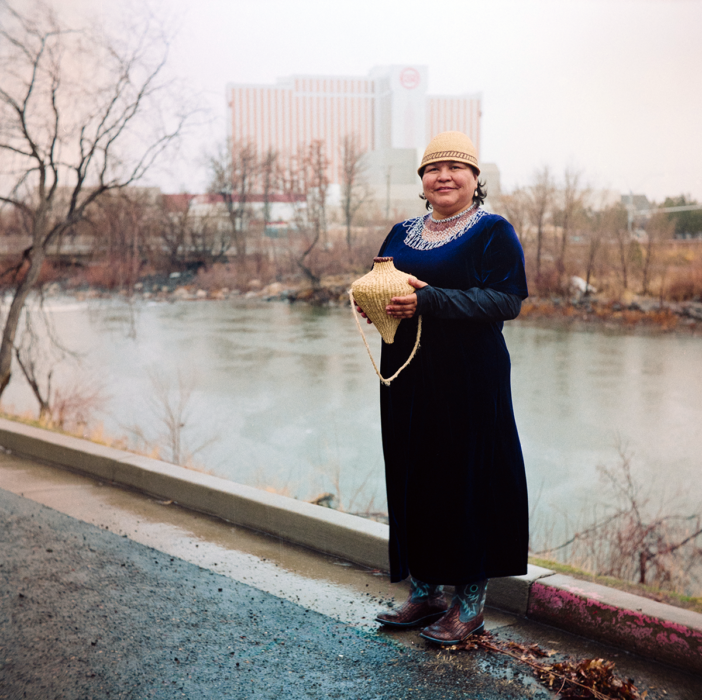
Melanie Smokey, 49, a single mother in Reno, had to play the cultural roles of both parental figures while raising her two kids. Her son and daughter, now 26 and 24, were no city kids; she made sure to instill traditional Shoshone and Washoe knowledge about plants, weaving, and connection to water.
“It was always a struggle to get them onto dirt,” Smokey said. She would take her kids back to where she grew up on the Yomba Reservation in the Reese River Valley as frequently as possible. “My kids spent a lot of time out at Reese River because I needed them to be a part of the land, and I needed a break from the city.”
But there were some roles she couldn’t handle completely, especially when her son hit puberty. “I felt bad because that’s the dad’s role. And in Shoshone way, when your voice changes, you get put on the hill, and that’s when all that man stuff gets taught to you,” she said. “But being a single parent, I had to do it. … I let him know what I expected of him as a man in our family.”
Her experience yielded a fierce independent streak in Smokey and her children. “I always told these guys to take care of each other because we’re all we’ve got. Just the three of us. That’s all that you can depend on.”
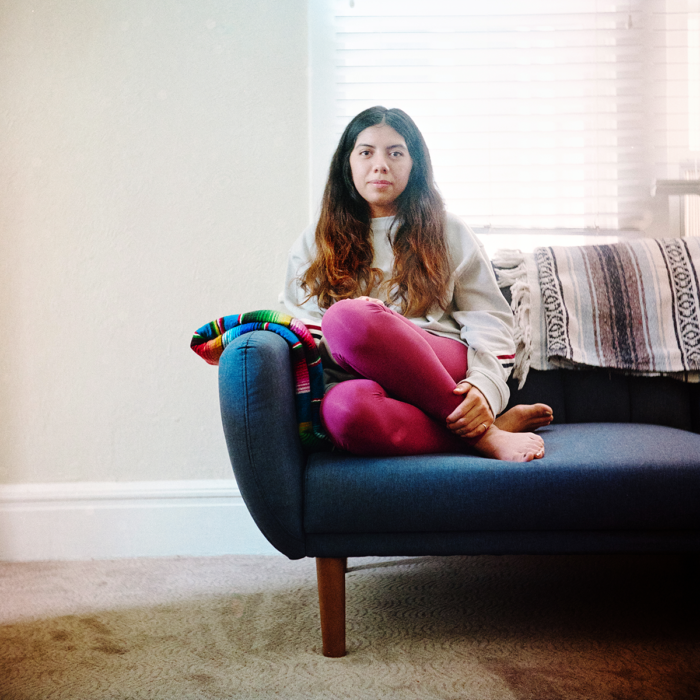
Abrianna Perez connected with her father’s Indigenous Mexican heritage only recently. The lack of understanding her identity and inherited historical trauma affected her as she grew up around white peers in Salt Lake City.
“I didn’t have my first [romantic] relationship until I was 21,” she said. Trying to connect intimately with someone who had never experienced the same kind of cultural and racial isolation brought out complex emotions Perez didn’t know she was dealing with. “That was a huge eye-opener for me, just because I knew there was a heaviness to me, and I didn’t know how to explain it to anyone, let alone a romantic partner.”
Perez became pregnant less than a year into that relationship. “The second it happened — I just feel like it was instinctual, like survival mode turned on — and I was like, I don’t think I can have a baby. There was no doubt … So I ended up having an abortion. And it just went south from there.”
The relationship ended, and Perez, now 27, says the emotional healing process has been a long and difficult one. “After we broke up, I started [realizing I had felt] really dehumanized, almost like I was fetishized,” she said. “I feel like he had a type where he just wanted to date an exotic brown chick.”
Perez hasn’t had any serious relationships since. Her priority is digging deeper into her Indigenous identity, understanding colonization in relationships, and healing herself. “I think there’s so much that I need to do within myself that this is fine. It feels good, to be honest.”
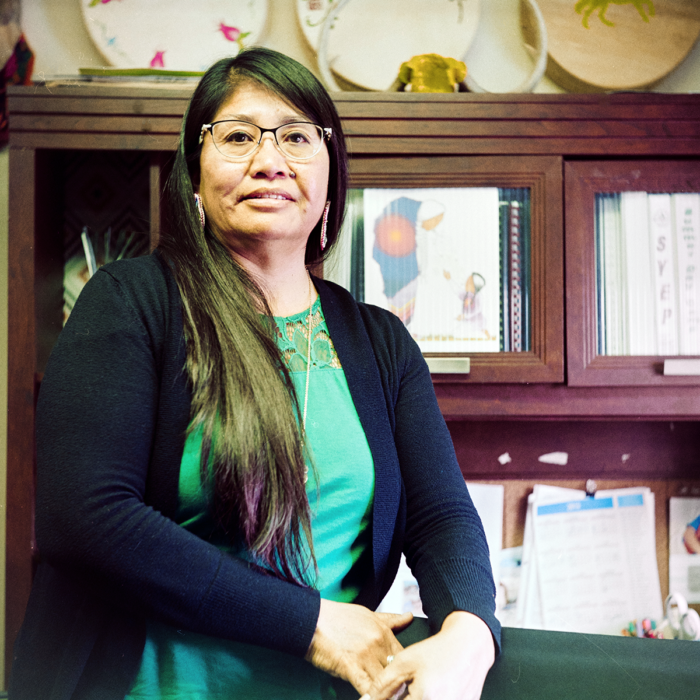
Jenny Burns, who is Pyramid Lake Paiute and Western Shoshone, was born and raised on the Reno-Sparks Indian Colony in Reno, but moved to the Pyramid Lake reservation to attend high school. She stuck around there, and now commutes 35 miles to Reno, where she works as a Paiute language specialist.
“When I went out to school in Pyramid Lake, they’d always call me city girl,” Burns, now 50, said. “To this day, I still feel like I don’t belong out there because I wasn’t raised out there. I feel like [Reno] is more my home, but it’s really not. My home’s out there.”
Two of Burns’ grown children have left the reservation for work in other states, which is something she is proud of. She hopes they’ll continue to explore other places.
“I don’t mind living on a rez; I love it,” she said. “But I never really thought that I could make it [outside the reservation]. I never had that encouragement. … But with my kids, there’s a big world out there — get out there.”
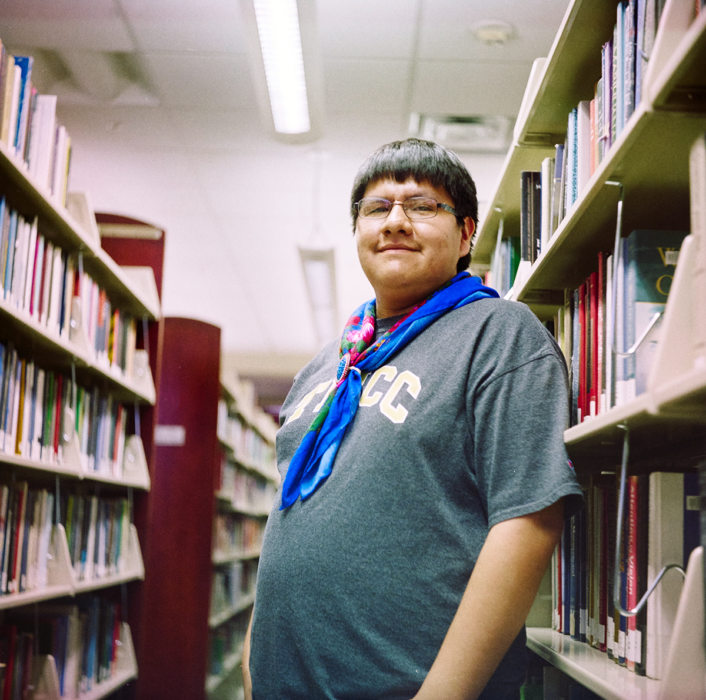
Growing up on the Fort McDermitt Indian Reservation, Brendan Abel faced adversity because of his sexual orientation. “I kind of felt like a black sheep growing up in Fort McDermitt, because I was gay, and a lot of people weren’t accepting of that,” he said.
Now attending community college in Reno, Abel, 22, said he didn’t initially consider dating other Native people a priority. “Now that I’m older, I’m realizing how few Natives are left in the world. I guess it’s kind of important to me a little bit because I’m Paiute. Just because there’s so few Natives left, especially Paiutes,” he said.
If he can’t find a Paiute partner, Abel said someone from another tribe would be a good match. “They understand the trauma that we face, the assimilation, the loss of language, the different atrocities,” Abel said. “But overall, I want someone who would treat me good, who’s faithful, funny, knows how to cook.”
This story has been updated.

